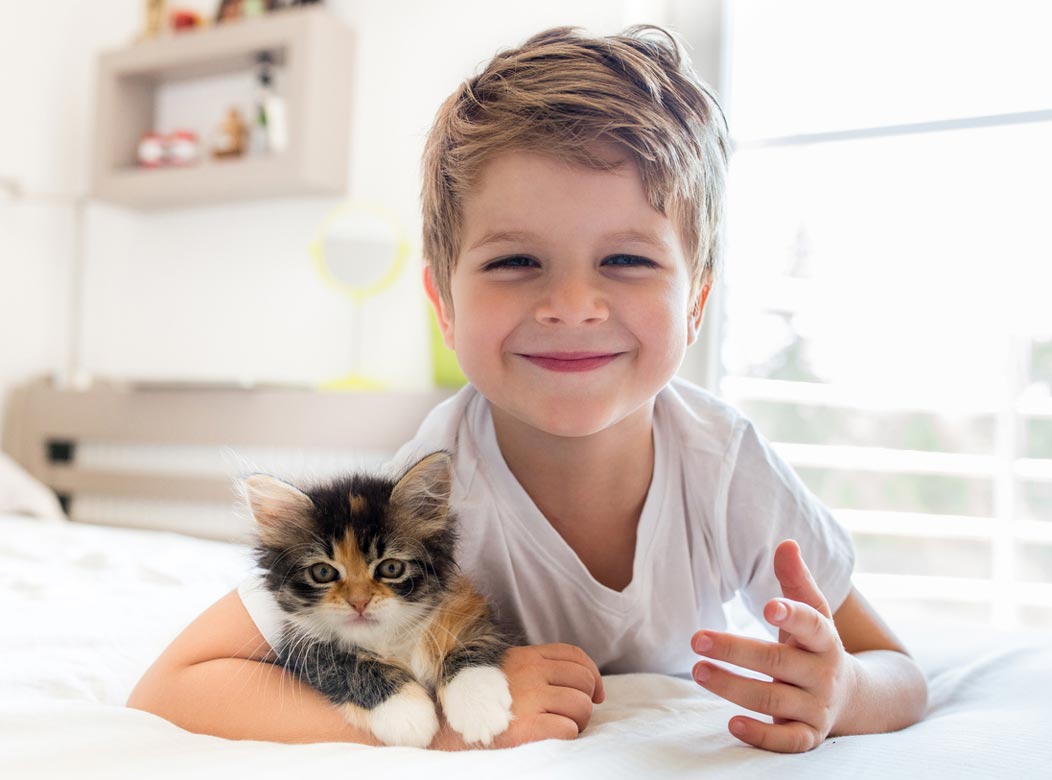Cats, Kids, and Flame Retardants

A team of scientists in Sweden who are working on the effects of PBDEs on cats have suggested that kids might also be at high risk of developing problems from the chemicals.
What Are PBDEs?
Polybrominated diphenyl ethers, or PBDEs, are flame retardant chemicals that are used in a wide variety of materials that enter our homes. They are in building materials, furnishings, electronics, plastics, and many other products.
PBDEs are used to make homes and their contents less susceptible to catching fire, but there has been great concern in recent years that these chemicals are entering the environment and having a negative impact on wildlife. Humans and pets may also suffer health problems secondary to exposure to PBDEs.
Feline Hyperthyroidism and PBDEs
Researchers have found that cats with hyperthyroidism often have much higher levels of PBDEs in their blood than other cats. Whether PBDEs cause feline hyperthyroidism still requires more study, but the link is interesting.
You can learn more here: "Flame Retardants and Hyperthyroidism in Cats."
Kids and PBDEs
Studies have shown that both kids and adults are showing higher blood levels of PBDEs than they were 15 years ago.
The researchers who have studied the link between feline hyperthyroidism and flame retardants are warning that children may also develop higher blood levels of the chemicals, leaving them at greater risk of developing health problems in the future.
Kids might have higher levels of PBDEs in their systems because they put things in their mouths more, spend more time on the floor, where house dust with the chemicals in it may settle, and breathe more air in per body weight than adults do.
What Can You Do to Limit PBDEs in Your Home?
Here are some things you can do to attempt to limit the PBDEs present in your home:
- Replace any items made with foam that have become misshapen or have exposed foam.
- Vacuum with a HEPA filter, which can trap smaller particles.
- Use an indoor air purifier with a HEPA filter.
- Try to find out what type of flame retardants are used on new products before you purchase them.
You May Also Like These Articles:
Flame Retardants and Hyperthyroidism in Cats
Fishy Food and Feline Hyperthyroidism
Should You Use a Flea Collar on Your Cat?
The Dangers of Detergent Pods for Cats
Ethoxyquin, Mercury, and PCBs: Is Feeding Fish Safe for Cats?
Top 10 Cat Toxins of 2014 - Slideshow
Warning: Topical Medications Containing Flurbiprofen May Be Dangerous to Cats


